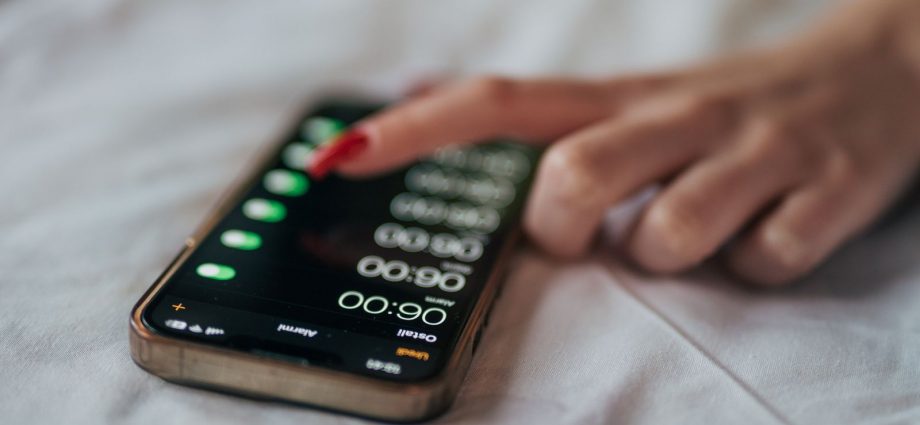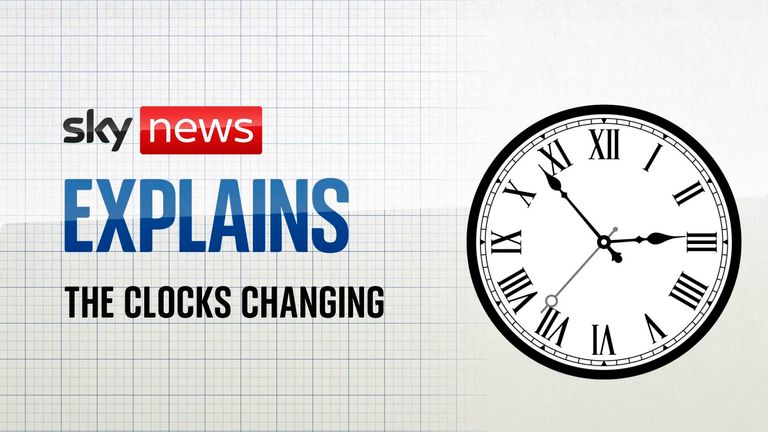The clocks go forward this Sunday, marking the beginning of the daylight saving period.
It will mean the time jumps to 1am on the turn of midnight on 30 March – and yes, bad news, you will lose an hour of sleep.
But the extra hour of daylight will mean longer, lighter evenings from next week.
“Spring forward, fall back” has been part of our calendar for more than 100 years – but whether we should continue the practice is hotly debated.
But why do some people get so up in arms about the clocks changing – and why do we do it in the first place?
Here is what you need to know – including how to prepare ahead of this weekend’s clock change.
Why do we have daylight saving time?
The change to British Summer Time (BST) – also known as daylight saving time (DST) signifies the end of Greenwich Mean Time (GMT) in the UK.
It lasts from the last Sunday in March until the last Sunday in October, when the clocks go back an hour.
It is common belief that DST was introduced to help give farmers more daylight hours to work in the fields. But this is not exactly true.
George Hudson, a New Zealand entomologist – someone who studies insects – first campaigned for more evening sunlight back in the 1890s, so he could study his beloved bugs. It was the first time changing the clocks around the seasons had been suggested seriously.
Jump to 1907 and British inventor William Willett – the man credited with bringing daylight saving to the UK – self-published a pamphlet called The Waste Of Daylight, in which he outlined his frustration with not getting the most out of summer days.
He initially proposed that clocks jump forward by 80 minutes in four incremental steps in April and reversed the same way in September – but he died before any law was implemented in the UK.
The first country to adopt DST was Germany in 1916, during the First World War. The UK followed suit a few weeks later.
How does daylight savings affect your health?
Since the implementation of DST, and particularly the clocks going forward in spring, various studies have found that darker mornings and lighter evenings can cause havoc with some people’s bodies.
In fact, sleep and dream researcher Charlie Morley said there is “overwhelming” evidence of the health issues the switch can cause.
“What research shows is what a massive effect on the body and mind, just one extra hour [of sleep] can have,” Mr Morely told Sky News.
One study cited by the American Heart Foundation found there was a 24% increase in heart attacks on the day following the switch to daylight saving time – however the opposite effect has been identified in autumn, when the clocks go back.
Another from 2016 in Finland found there were 8% more hospital admissions for the most common type of stroke in the two days after the shift to daylight savings.
Researchers also note those suffering strokes and heart attacks were likely to already be at higher risk.
When asked what symptoms losing an hour of sleep can lead to, Mr Morely said: “The interesting thing is when you get a really short amount of sleep, like four hours or less, the fear centre of the brain, known as the amygdala, becomes 60% more active.
“This can make it seem like everything is annoying, threatening or in conflict. So if you lose an hour of sleep, you might see an increase in the amygdala response, making you more grumpy and tetchy.”
Read more from Sky News:
Seasonal affective disorder isn’t just ‘winter blues’
Partial eclipse to be visible from UK
Should daylight saving be scrapped?
Whether to keep daylight saving or not has been a hotly debated question for many years, but was reignited in October last year, when the British Sleep Society called on the UK government to abolish the twice-yearly clock changes.
In an article at the time, researchers said due to the negative effect DST has on circadian and sleep health, the UK should abolish the change altogether, and reinstate standard time throughout the year.
In reality, only about a third of the world’s countries practice daylight saving time, according to the Pew Research Center.
US President Donald Trump wrote in a post on Truth Social last December that he wanted to scrap DST. His secretary of state Marco Rubio has also called the ritual of changing time twice a year “stupid”.
The European Parliament has also previously voted for all EU member countries to scrap DST, but after the Parliament and EU Council couldn’t reach an agreement on the legislation, it never became law.
One of the few places that doesn’t follow DST in Europe is Iceland, due to its location and extreme variations in daylight throughout the year.
How to prepare for clock changes and the ‘golden rule’ of napping
Mr Morley says it is impossible to make up for lost sleep, but those worried ahead of daylight saving time can “front load sleep”.
This involves someone getting “really good, quality sleep before entering a period of bad sleep”.
Exposing yourself to natural sunlight first thing in the morning, eating meals based on the time of day it is where you are, minimise the use of caffeine and exercising can also all help treat negative effects of losing an hour of sleep.
Mr Morely added that napping can also be an effective way of dealing with sleep deprivation – but there are some hard and fast rules.
“The two golden rules of napping are it needs to be under an hour, so between 20 minutes and 60 minutes, and the nap needs to end six hours before you intend to go to bed again,” he explained.
“There is a chemical called adenosine, which is known as the tiredness chemical, and it takes around five to six hours to build up. So if you want to go to bed at midnight, as long as your nap ends up 5pm you have got enough time for adenosine to build up, and you will be tired enough to go to bed.”





